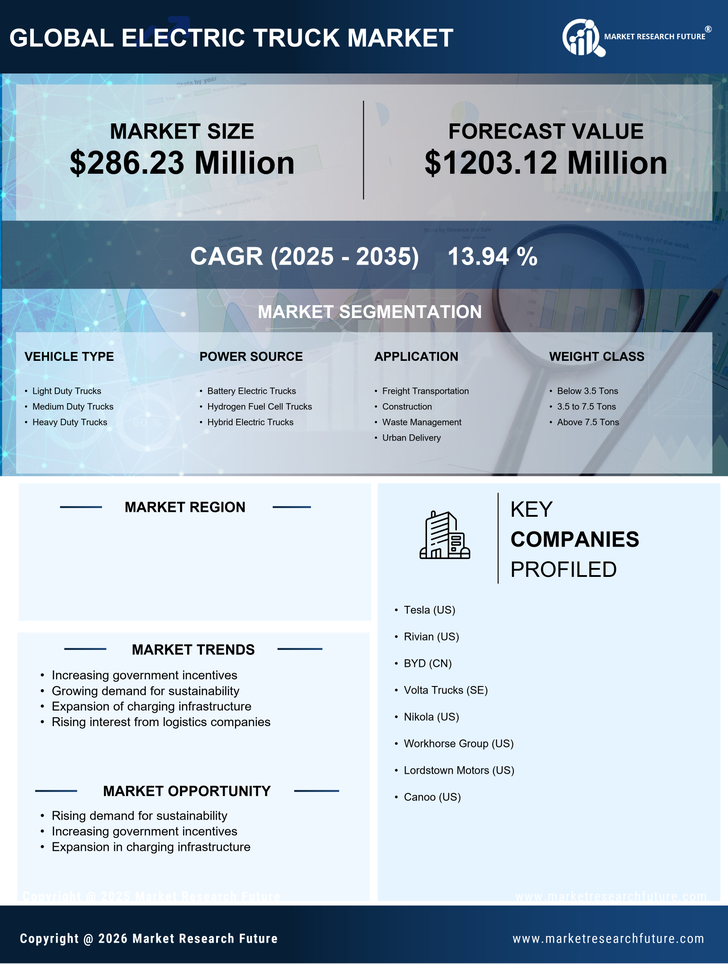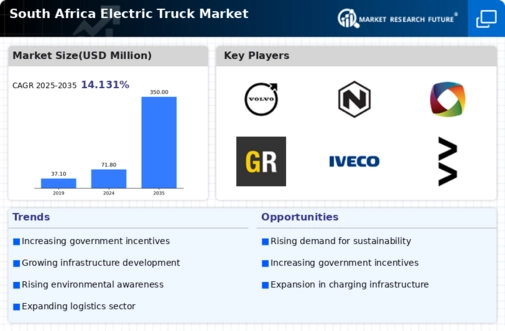Rising Fuel Costs
The escalating costs of fossil fuels in South Africa are driving interest in the electric truck market. As fuel prices continue to rise, logistics companies are increasingly seeking alternatives to reduce operational expenses. Electric trucks, which offer lower running costs due to reduced fuel consumption, present a viable solution. The total cost of ownership for electric trucks is projected to be significantly lower over time, with estimates suggesting savings of up to 30% compared to traditional diesel trucks. This economic incentive is likely to encourage fleet operators to transition to electric vehicles, thereby stimulating growth in the electric truck market.
Environmental Regulations
Stringent environmental regulations in South Africa are compelling businesses to adopt cleaner technologies. The government has implemented various policies aimed at reducing carbon emissions, which directly impacts the electric truck market. Companies face increasing pressure to comply with these regulations, leading to a shift towards electric trucks that produce zero tailpipe emissions. The South African government aims to reduce greenhouse gas emissions by 34% by 2025, which may further incentivize the adoption of electric trucks. As businesses strive to meet these targets, the demand for electric trucks is expected to rise, fostering growth in the electric truck market.
Technological Innovations
Advancements in battery technology are significantly influencing the electric truck market. Innovations such as improved energy density and faster charging capabilities are making electric trucks more appealing to fleet operators. In South Africa, the development of local battery manufacturing facilities is expected to enhance supply chains and reduce costs. The introduction of solid-state batteries, which may offer longer ranges and shorter charging times, could further revolutionize the market. As these technologies mature, they are likely to enhance the performance and reliability of electric trucks, thereby attracting more businesses to invest in this market.
Corporate Sustainability Goals
Many companies in South Africa are increasingly adopting corporate sustainability goals, which include reducing their carbon footprint. This trend is driving the demand for electric trucks, as businesses seek to align their operations with environmentally friendly practices. The electric truck market is seen as a key component in achieving these sustainability objectives. Companies that invest in electric trucks may benefit from enhanced brand reputation and customer loyalty, as consumers become more environmentally conscious. This shift towards sustainability is likely to propel the growth of the electric truck market as businesses strive to meet their corporate social responsibility commitments.
Urbanization and Logistics Demand
The rapid urbanization in South Africa is creating a surge in logistics demand, which is positively impacting the electric truck market. As cities expand, the need for efficient and sustainable transportation solutions becomes more pressing. Electric trucks are well-suited for urban environments due to their lower noise levels and zero emissions, making them ideal for last-mile delivery services. The growth of e-commerce is further driving this demand, with projections indicating that the logistics sector could grow by 10% annually. This urban logistics trend is likely to encourage the adoption of electric trucks, thereby fostering growth in the electric truck market.

















